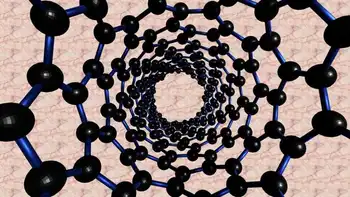Swiss solar scientist wins technology prize
LAUSANNE, SWITZERLAND - Swiss scientist Michael Graetzel won the 2010 Millennium Technology Prize for helping to develop cheap solar cells for renewable energy projects.
The German-born chemist, director of the photonics and interfaces laboratory at Ecole Polytechnique de Lausanne in the Swiss city of the same name — was awarded the euro 800,000 US $960,000 prize by the Technology Academy of Finland for his innovation, which led to the development of electricity-generating windows and mobile solar panels.
The Finnish academy said finding ways to replace the Earth's diminishing fossil fuel supply was one of mankind's greatest challenges, adding that the sun is "the most obvious energy source."
"The constraint of solar energy has traditionally been its price. Graetzel cells provide a more affordable way of harnessing solar energy," said Ainomaija Haarla, president of the academy. "Graetzel's innovation is likely to have an important role in low-cost, large-scale solutions for renewable energy."
The academy described the price-performance ratio of Graetzel's cells as "excellent, adding that they had just made their commercial debut.
"The technology often described as 'artificial photosynthesis'... is made of low-cost materials and does not need an elaborate apparatus to manufacture," the academy said.
Graetzel, 66, won the main prize while runners up — Sir Richard Friend and Stephen Furber, both British — were each awarded euro 150,000 US $180,000 for plastic electronics and microprocessors.
Friend, a professor of physics at the University of Cambridge, was cited for inventing organic Light Emitting Diodes, known as LEDs, "a crucial milestone in plastic electronics."
"Electronic paper, cheap organic solar cells and illuminating wall paper are examples of the revolutionary future products his work has made possible," the international award committee said.
Furber, a professor of computer engineering at the University of Manchester, is the principal designer of the 32-bit ARM microprocessor that the academy said "has revolutionized mobile electronics."
"The ingeniously designed processor enabled the development of cheap, powerful, handheld, battery-operated devices. In the past 25 years, nearly 20 billion ARM-based chips have been manufactured," it added.
Stig Gustavson, chairman of the academy's board, said that all three inventions "benefit mankind as broadly as possible, both today and in the future."
It was the fourth time that Finland has awarded the biennial Millennium Technology Prize, launched by the government and Finnish industry in 2004. The prizes are for achievements in energy and the environment, communications and information, new materials and processes as well as for health care and life sciences.
The previous winner, in 2008, was American Professor Robert Langer from MIT for developing bio-materials used in combatting cancer and heart disease.
Other winners include Japanese Professor Shuji Nakamura for inventions in laser technology and LED lighting, and Tim Berners-Lee, the MIT scientist credited with inventing the World Wide Web.
Related News

Senate Committee Advised by WIRES Counsel That Electric Transmission Still Faces Barriers to Development
WASHINGTON - Today, in a high-visibility hearing on U.S. energy delivery infrastructure before the United States Senate Committee on Energy and Natural Resources, WIRES Executive Director and Former FERC Chairman Jim Hoecker addressed the challenges and opportunities that confront the modern high-voltage grid as the industry strives to upgrade and expand it to meet the demands of consumers and the economy.
In prepared testimony and responses to Senators' questions, Hoecker urged the Committee to support industry efforts to expand and upgrade the transmission network and to help regulators, especially the Federal Energy Regulatory Commission, promote certainty and predictability in energy policy…




